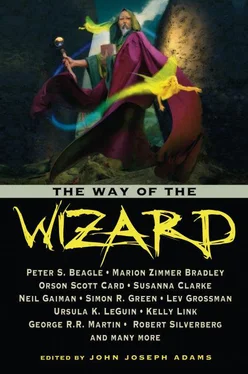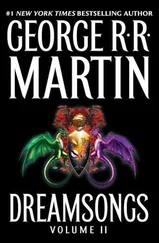He told them about his plans for youth group. He wanted to shake things up. “More energy,” he said. “More passion for Christ! We’ve got to get these kids’ attention.” He wanted more hands-on service activities, more dynamic sermons, more music.
“Hannah sings, you know,” her mother said. “And plays the keyboard.”
“Fantastic,” Peter said. “I’m putting together a worship team. Wanna come try out?”
Of course she said yes.
That night, Hannah lay awake thinking about him. He was the way she imagined Jesus: handsome and kind. When he told stories, you wanted to listen. When he looked at you, you couldn’t look anywhere else.
That was before the demons came. (Despair. Rage. Guilt and Shame. The perfect quartet.)
Peter swings out of his seat. He walks down the aisle of the bus, pausing at each seat to say hello. He talks to Krista and Franny for a long time, leaning to catch their words over the noise of the bus. She watches them watch him. She watches him watch them. Their faces are full of adoration.
He doesn’t speak to her, just flashes her a smile she still can’t read.
And the creaking bus forces its way forward.
What’s the value of seeing the future if you don’t know how to change it? You can brace for the wave, but you can’t calm the sea. Helplessly, the wizard peers into her mirror, searching for knowledge to illuminate her path; she pores over her books, looking for anything that will help defeat the incubus.
And while she searches, the city devolves into a waking nightmare. Perta Perdida is a world linked not by geography but by desire, mapped onto far-flung hidden spaces, governed by laws of the soul and not the mind. It falls victim to enemies that are equally fragmented, and thus untouchable. The city is everywhere and nowhere, fleeting and timeless; the threat they face is the same way.
The incubus, irrational and lacking in substance, drifts through windows and beneath doors. Girl after girl falls victim to its night time whispering, cajoled in the darkness of deep sleep to places beyond consciousness, islands without a name, castles ruled by fear. Sleepwalking, they wander into the forest’s wilds, the shadowy in-between where the spirit dwells, safe from the prying sunlight. Girl after girl, wrenched from home, lost to herself, stranded in the badlands of her own mind.
Afraid to fall asleep, the girls set watches through the summer nights. With lamplight and candlelight they sit vigil through sultry July, counting the hours ’til morning. They walk through the days pale as ghosts. Things fall apart: the bakeries are empty, the soup kitchens abandoned, the fountains dry. Even the butterflies are grounded, as the technicians lose their focus. The seamstress shops are closed, the tailors too blurry-eyed to see tiny stitches.
There are desperate orgies. Girls drink all the sweet sangria they can hold, then dance half-clothed among the magnolias and orange blossoms until they collapse at dawn. If these are the last days, they want to enjoy them to the fullest.
Still, there are disappearances.
The Bible retreat ends with a sermon. Like every sermon to kids Hannah’s age, this one is about purity. The minister talks about purity in body, purity in mind. He talks about pledging the flesh to God. He talks about reclaiming lost virginity; without that loophole, the whole thing would be too harsh. He talks and talks.
After the sermon, while the woman at the organ endlessly loops the same emotive chords, the minister invites anyone who feels moved to come to the front and pledge themselves to God. It doesn’t matter if you’re understanding for the first time that you’re a sinner in need of grace, or realizing that you’ve strayed from your path and need that grace once more. God doesn’t care. God’s always there.
But he doesn’t say anything about God’s opinion of a teenage girl sitting behind a keyboard and playing a duet alone with her youth minister, losing herself first in the music and then in his piercing eyes, so that when he reaches out to touch her chin, she finds herself paralyzed, and as his lips touch hers, she’s lost in euphoric betrayal, swimming in the shallows of a secret that she already knows is too deep for her to navigate, that becomes deeper with each illicit meeting, until she’s drowning in it with no anchors, and as the girl loses interest in her meals and becomes increasingly withdrawn, with dark circles under her eyes, spending more and more time in her room picking her way through weighty songs, well, she’s a teenager, what do you expect?
One by one the kids streak down the aisles and kneel at the edge of the stage, and the minister prays for them, calling down God’s forgiveness and blessing.
Hannah’s been down that road before — or down that aisle, to be more precise. God’s forgiveness might be endless, but she won’t accept it until the day comes when she can forgive herself. In the meantime, no matter how many times they promise absolution, she’s staying in her seat.
When the tears streak down her cheeks, the girl beside her clutches Hannah’s elbow and then puts her arms around her. “Go on up,” she whispers. “It’s okay. I’ll come with you.”
Hannah just shakes her head.
She dreams of the day she can run. She’s thinking of a women’s college; she likes the pictures, girls nestled under an oak tree on the quad, or meeting for class in the library.
She doesn’t particularly care which women’s college, as long as it’s far, far away.
The days crawl by, and slowly the wizard Hanna D’Forrest learns more about the spirit. Her books hold drawings of a creature that preys on young girls by night and morphs into a stag by day. She hears reports from girls who’ve seen such a stag, bounding toward the forest in the first light of dawn.
If it assumes a physical form, she can defeat it.
But how to draw the creature to her?
She knows a way, but it isn’t easy.
After her travels across the world, she retains only a few treasured possessions from her childhood days — items that once belonged to the witch. There are the books, of course; they existed for centuries before they fell into her hands, and she hopes they’ll exist for centuries more. There is a small stone carving of a cat, which she has always liked and never understood. There is also a vial of perfume so intensely precious that it contains only three drops.
The witch refused to tell Hanna what was in the vial. She would only caution her against its use. The witch herself inherited the vial from a sorceress — she would never describe the events that led to this gift — but she had never used it, never sniffed it, never even opened it. The vial contained dark magic, deep and dangerous. The witch knew it was beyond her capacity to control.
Your power is only your power if you know its limits.
Later, under tutelage from great wizards, magicians and sorceresses, Hanna learned about the vial’s contents. Now she understands that this perfume holds the same power that gives her magic its force: feminine sexuality. It is feral. It is treacherous. It is extremely unstable.
The incubus is dark energy. So is she. (If she can find the courage to tap that power. If she can find the resolve to do what must be done.)
That night, the wizard trembles in her sleep.
She dreams of lands she has never seen, lovers she has never tasted, spells she will never utter. She sees shining seas, glittering towers, assembly lines and forest floors. She smells frying noodles, hot metal, marina waters and sweet honeysuckle. She hears chiming bells, raucous construction, rock and roll.
She dreams of the world she’s afraid to explore and the one she’s afraid to give up.
She is old, but not that old.
Читать дальше












